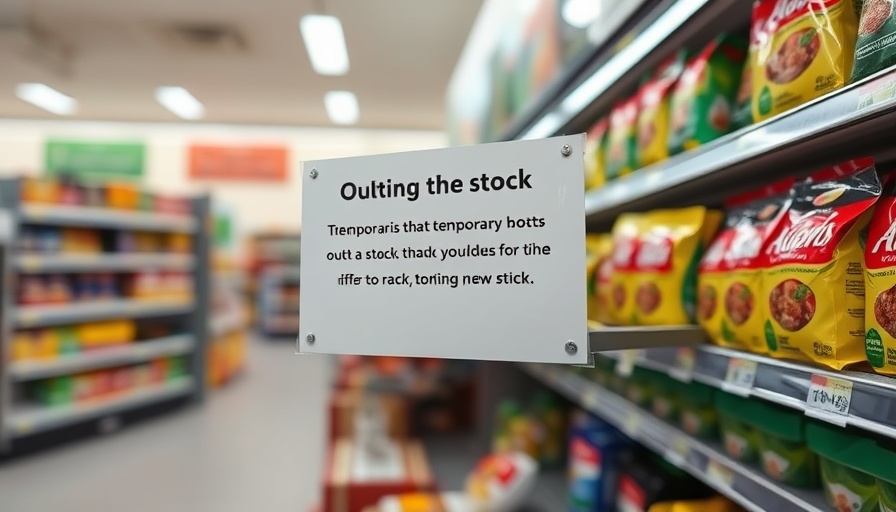
UNFI Grapples with Cyberattack Amid Ongoing Food Shortages
In a distressing time for grocery shoppers, United Natural Foods, Inc. (UNFI), one of North America’s leading food distributors, is facing the aftermath of a significant cyberattack that struck on June 5, 2025. As stores wrestle with empty shelves and unfulfilled orders, UNFI is working diligently to restore its ordering systems. This situation highlights the vulnerability of essential supply chains in an increasingly digital world.
The Chain Reaction of Cyberattacks
The cyberattack that has paralyzed UNFI comes at a critical moment when grocery stores, especially Whole Foods, are already grappling with product shortages. According to reports, many Whole Foods locations across the nation depend heavily on UNFI for their inventory. The disruption has left many customers perplexed about when they might find their favorite products back on the shelves.
This incident throws a spotlight on the rising number of cyberattacks targeting critical infrastructure entities, with food distribution increasingly becoming a susceptible sector. Recent larger-scale attacks in the supply chain illustrate that vulnerabilities can lead to significant outages, emphasizing the importance of robust cybersecurity measures.
Understanding the Impact on Local Grocers
Local grocery stores are also feeling the pinch of UNFI's operational struggles. Reports indicate that while some other distributors are stepping in to bridge the gap, consistency remains a challenge. A local supermarket employee shared, "We've been struggling to find basic supplies like dairy and bread. The shelves are bare, and we're unsure when anything will return to normal." Such comments reflect a shared frustration among consumers and retailers alike.
The ripple effects of this incident are not just operational; they also raise questions about consumer trust in supply chains. Shoppers might begin to feel apprehensive about food availability if such breakdowns become a recurring theme.
Proactive Measures for Future Security
The ongoing food shortages and UNFI's cyberattack cannot be ignored as a warning signal for the food industry and its infrastructure. It prompts a reevaluation of cybersecurity policies and strategies. Retailers and distributors need to adopt advanced security measures and contingency planning if they are to shield themselves against future cyber onslaughts.
Experts suggest that investment in cybersecurity tools such as encryption, intrusion detection systems, and regular security audits could help mitigate these risks. Moreover, clear communication and response strategies can provide consumers with realistic expectations during crises.
What Lies Ahead for UNFI and the Industry
The future remains uncertain for UNFI as they grapple with recovery timelines that have not been outlined. Analysts are closely monitoring the situation, considering how its outcomes may influence other distributors and grocery chains across the continent. With much of the industry now realizing that food distribution relies heavily on technology, a shift toward enhanced security protocols is not just advisable—it's imperative.
Retailers may need to diversify their supplier base, ensuring they are not solely reliant on one distributor, which could eventually stabilize the food supply. While UNFI's focus is on recovery now, the broader industry must look to the future, where actions taken today can shape the resilience of tomorrow’s supply chains.
Conclusion: A Reminder on Supply Vulnerabilities
The UNFI cyberattack serves as a stark reminder of the vulnerabilities inherent in modern supply chains. As technology continues to enhance operational efficiency, the associated risks cannot be overlooked. Consumers, retailers, and distributors must advocate for stronger safeguards and awareness to ensure food security in the future.
 Add Row
Add Row  Add
Add 



Write A Comment